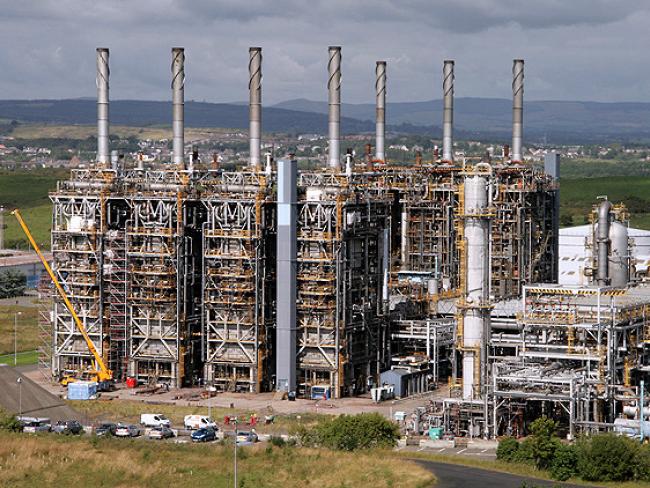27 November 2025

ExxonMobil ethylene plant, Mossmorran, Fife, which opened in 1985. Photo Walter Baxter via Geograph (CC BY-SA 2.0).
ExxonMobil have announced the closure of the Mossmorran ethylene plant in Fife. The plastics refinery will close next February with the loss of 400 jobs.
The UK government has said it will not give any financial support, despite widespread concerns about the impact for the area and wider British industry. The Scottish government is taking a separate approach to managing the closure.
Key ingredient
Mossmorran has made ethylene, the key ingredient in making polyethylene, for over forty years. Once the plant closes nowhere in Britain will produce ethylene, for the first time since the development of the industrial production of polyethylene.
Polyethylene was first synthesized in 1898 but it was not until the 1930s that workers at ICI in Northwich, Cheshire showed that industrial production was possible. Used in secrecy as an insulator in World War 2 radar sets, commercial production and further development ramped up in the 1950s. It is now the most widely made plastic, and comes in many forms.
Condemnation
Industry trade union Unite condemned the closure, demanding that the closure be withdrawn and all options to secure the workforce’s jobs be explored. It pointed out that ExxonMobil made profits of £25 billion last year.
“We are sleepwalking into full-scale de-industrialisation.”
David Whitehouse, head of the offshore energy industry trade body, said in response to the news that it was sad and troubling in the wake of widespread job losses in the oil and gas sector. He continued, “We are sleepwalking into full-scale de-industrialisation…But it does not have to be this way. We should be building modern industrial Britain on the shoulders of our proud industries.”
Critical capability
The Society of Chemical Industry CEO, Sharon Todd, was quoted on X as saying, “The ExxonMobil plant closure is another example of the UK losing its capability to supply key industries with critical materials and capabilities being permanently lost from the UK. It follows previous worrying moments such as the closure of the refinery at Grangemouth, and as well as the local impact on jobs, these closures have an impact on the industrial system at a national level, leaving UK industry more reliant on imports and without critical capabilities.
“Without further Government action to address the high energy costs for industry, and a greater consideration of the importance of fossil carbon for material feedstocks, industrial resilience in the UK is undermined, and further closures are increasingly likely.”
